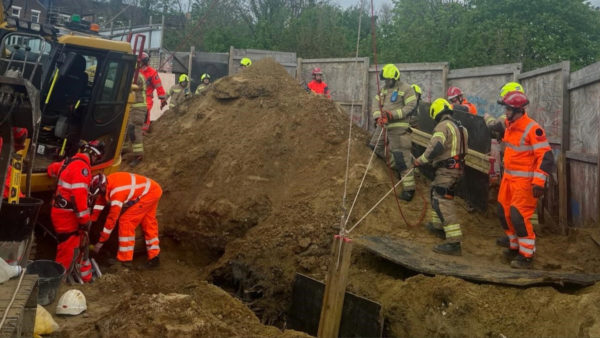The Value Toolkit launches this month and the CIOB has led on human capital and how it can be measured during different stages of a project. Daisie Rees-Evans explains
In the summer of 2020, the Chartered Institute of Building (CIOB) joined forces with the Royal Institution of Chartered Surveyors, Royal Institute of British Architects, the UK Green Build Council and Social Value UK, to develop the Value Toolkit.
The Value Toolkit, which is multi-stakeholder project lead by the Construction Innovation Hub and backed by UK government funding, aims to help built environment organisations better define, understand and manage the value created throughout the lifecycle of a project.
"The Value Toolkit’s user-friendly tools and processes will help clients define and communicate a deeper definition of value beyond simply capital cost"
Using the ‘five capitals model’, CIOB leads on human capital. This has brought together expertise from across the industry to define what is meant by human capital and how it can be measured during the different stages of a project. The toolkit is set to be formally launched this month (April 2021), and will include a free digital platform to support clients and practitioners make value-based decisions throughout the project lifecycle.
The Value Toolkit has been developed with over 150 experts from across the sector and is aligned with the HM Treasury’s Green Book and Balanced Scorecard, and private sector Environmental, Social and Governance (ESG) investment criteria which can be scaled to support global, national or local priorities.
The built environment is key to ensuring the UK makes a strong recovery from the covid-19 pandemic. We have an imperative to deliver better outcomes from the built environment and as we emerge from the pandemic, the practices which have dominated the construction sector for so long are simply not sustainable – either from an environmental, societal, or economic perspective. We are delighted to support the design, development and roll-out of the value toolkit which will enable the industry to transform decision making to measure and achieve added value throughout the lifecycle of a project.
The Value Toolkit’s user-friendly tools and processes will help clients define and communicate a deeper definition of value beyond simply capital cost, and support informed decision-making that balances social, environmental and economic benefits and consequences.
The Value Toolkit will not only allow for value-based decisions, but it will foster innovation and improve the quality of assets for future generations. Currently the toolkit is focused on the UK built environment, but longer term could present huge value for international stakeholders if industry truly engages in value-based decision making.
The CIOB will continue to be a driving force for change and assist clients and the wider industry to get up to speed with the Value Toolkit. This is a pivotal time for the industry, and we look forward to the positive impact this will have on our built environment.
Daisie Rees-Evans is policy officer at the CIOB.










